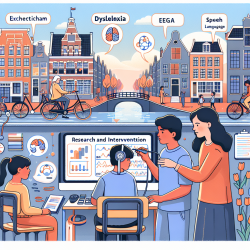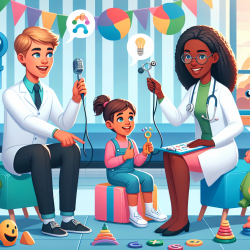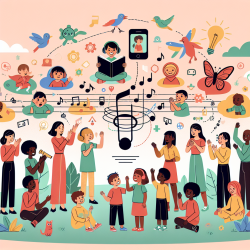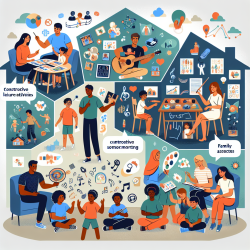Introduction
In the realm of speech-language pathology, innovative approaches that incorporate holistic and culturally sensitive methods can significantly enhance therapeutic outcomes for children. Drawing parallels from the research article titled “Sex is supposed to be naturally more pleasurable”: Healers as providers of holistic sexual and reproductive healthcare in Uganda, this blog explores how practitioners can improve their skills by integrating holistic practices observed in Ugandan healers into their speech therapy sessions.
Understanding the Role of Holistic Healthcare
The study conducted in Uganda highlights the role of traditional, complementary, and alternative medicine (TCAM) providers, or "healers," in offering sexual and reproductive healthcare (SRH) to young people. These healers address not only the physical aspects of health but also consider emotional, social, and economic factors. This holistic approach is crucial in contexts where biomedical services are scarce or stigmatized.
For speech-language pathologists, adopting a similar holistic perspective can be beneficial. Understanding the child's environment, cultural background, and emotional state can lead to more effective and personalized therapy plans.
Key Insights for Speech Therapy Practitioners
- Addressing Stigma and Accessibility: Just as Ugandan healers provide an alternative to stigmatized biomedical services, speech therapists can create a welcoming and inclusive environment that encourages children and their families to engage openly in therapy.
- Integrating Cultural Practices: The Ugandan healers' ability to blend traditional and biomedical practices offers a lesson in cultural competence. Speech therapists should strive to incorporate culturally relevant materials and methods into their sessions.
- Holistic Assessment: Like the healers who consider economic and social factors, speech therapists should assess the broader context of a child's life, including family dynamics and socioeconomic status, to tailor interventions effectively.
- Collaborative Approach: Encouraging collaboration between different healthcare providers, as seen in Uganda, can enhance the support network for children receiving speech therapy. This might include working with educators, psychologists, and other specialists.
Encouraging Further Research and Application
The integration of holistic practices in speech therapy is an area ripe for further research. Practitioners are encouraged to explore how these methods can be systematically applied and evaluated within their practice. By doing so, they can contribute to a growing body of evidence supporting holistic and culturally sensitive approaches in speech-language pathology.
Conclusion
Incorporating holistic healthcare insights from Ugandan healers into speech therapy can lead to more comprehensive and effective interventions for children. By addressing the multifaceted needs of their clients, speech therapists can foster better communication outcomes and overall well-being.
To read the original research paper, please follow this link: “Sex is supposed to be naturally more pleasurable”: Healers as providers of holistic sexual and reproductive healthcare in Uganda.










